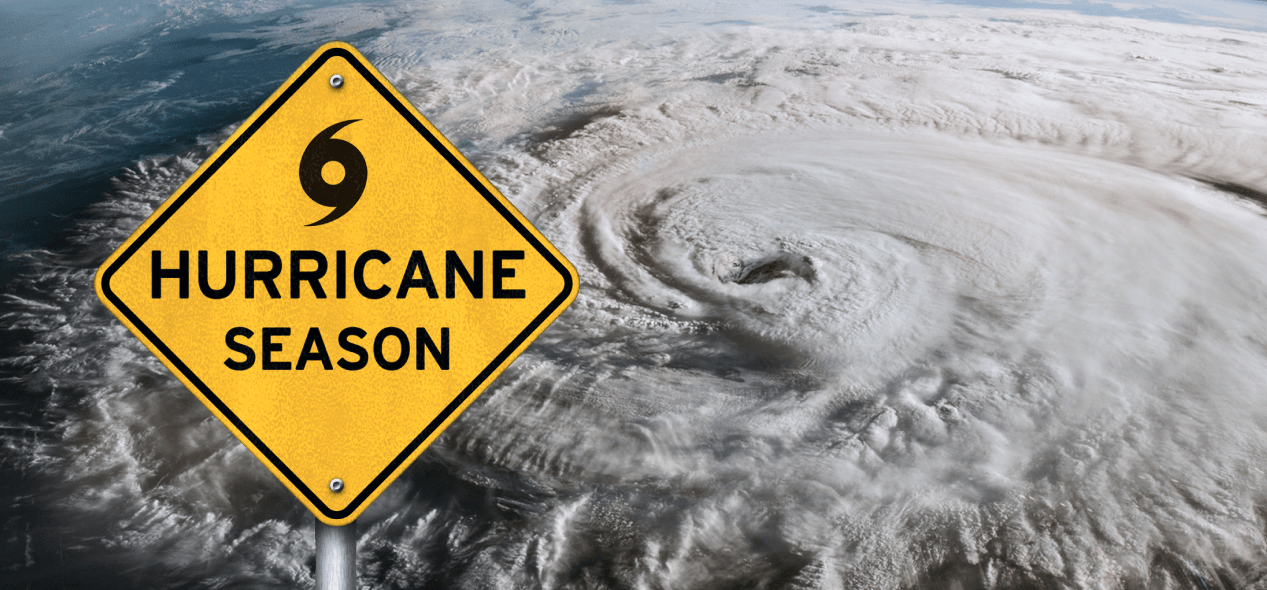
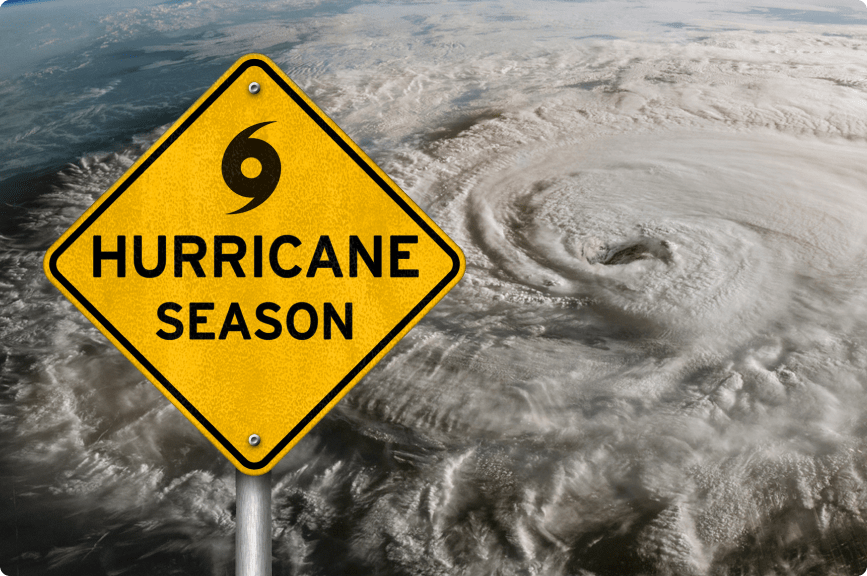
Hurricane season is as unpredictable as it is devastating. It’s never too early to prepare for what the season may bring, and the possibility of losing power when you need it most.
If you live in an area prone to severe storms and hurricanes, it's a good idea to invest in solar with battery storage. Adding a backup battery to your solar can help you prepare for the worst by taking a proactive approach to your home energy — and ensuring you're not left in the dark if you lose power.
Consider this: Anyone who has solar panels without a battery cannot store that energy for later use, such as during an outage. This is because solar only generates energy in real time when the sun is shining; you must use that power as it’s produced. If the grid goes down, you won’t be able to create or consume any solar energy — your system will automatically turn off. This safety measure prevents your energy from feeding the grid and endangering repair crews working on the lines. When the power returns, your solar system will automatically turn back on.
Therefore, it’s critical to have battery storage with your solar panels as part of your hurricane preparedness plan. Unlike a solar-only system, most solar plus battery systems let you disconnect from the grid, so you can continue producing solar energy (providing there's enough sun) to run your home and fill your battery, even during an outage. By charging your battery before a storm hits, you can rest assured that you'll have a supply of backup power to run essential appliances even if your city is in a blackout.*
A Home Battery or Generator — Which Should You Choose?
Generators and solar batteries are both good options if you’re wondering how to prepare for a hurricane. There are two main types of generators on the market: portable (or pull-start) models and standby generators. All backup power solutions need a fuel/energy source to run — whether you have solar panels converting sunlight into usable energy, or a gas-powered generator. When planning for hurricane season, here are three resiliency options:

Standby Generator
Professionally installed outside your home and wired into your home’s electric panel. Often fueled by natural gas or liquid propane, these whole-home generators can power many of your home’s essential appliances.
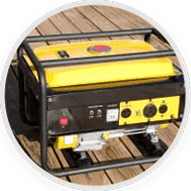
Portable Generator
Used for emergency backup power, these gasoline-powered generators are often a last resort for temporary power and don’t require professional installation.
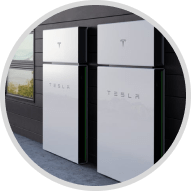
Solar Battery
Solar with battery storage can provide your home with clean energy for days at a time (if appropriately sized), should you lose power. If you already have solar panels installed, a backup battery is an easy add-on to any system. It offers additional benefits, such as letting you draw less electricity from the power grid, which is helpful if your utility has a time-based rate structure.
What's best for you? It depends. If you don't have solar or your house isn't ideal for a rooftop array, a standby generator is the better choice. If you already have solar, adding a battery to your system may offer a greater return on investment, thanks to the additional benefit of protection from peak utility rates.
For the greatest reliability in times of crisis, we recommend having both a standby generator and solar battery, if possible. When it comes to your and your family's safety, it’s never a bad idea to be well-prepared with diversified energy solutions.
Preparing for a Hurricane
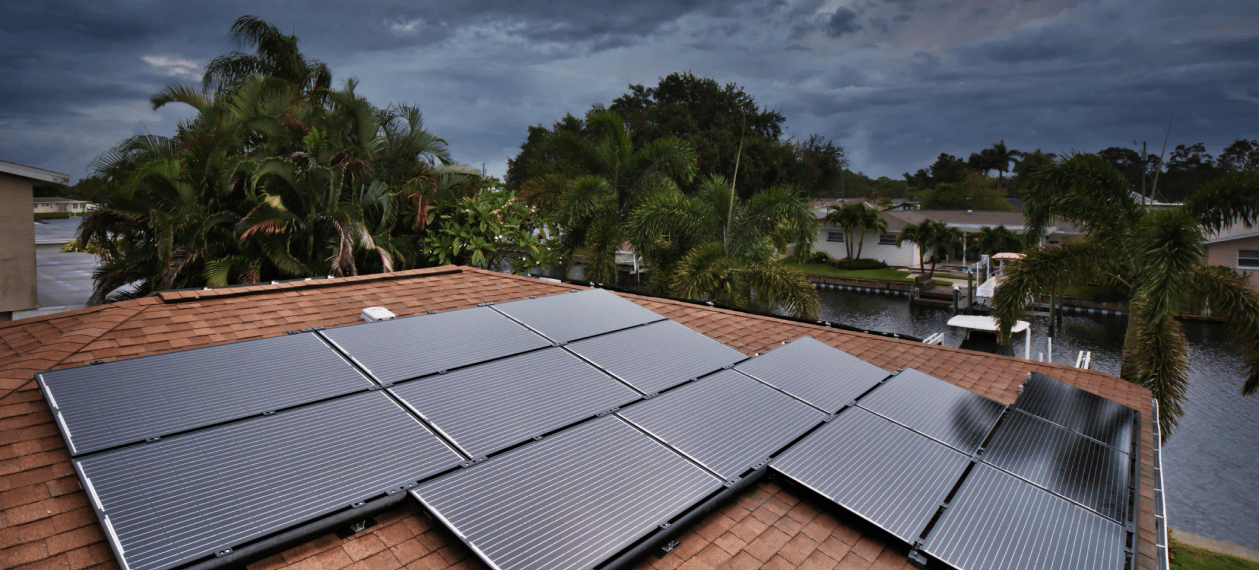
If you live in an area prone to severe storms, it's smart to be prepared for hurricane season, which starts in June. Many homeowners take photos of valuables and other treasured belongings to document their condition, should an insurance claim be necessary. This is also a good strategy for your solar system.
It’s wise to take pictures of your solar and battery system while the weather is clear and calm. Store hard copies alongside your home insurance policy and other important documents.
When you have Sunnova SunSafe® solar + battery storage, you’ll have resilient backup power to run your essential appliances if you lose power during a hurricane. If you purchase solar panels or a solar and battery system, you’ll be covered by our 25-year Sunnova Protect® Platinum Plan. This includes the equipment and labor to repair the system if it sustains any damage during a hurricane or hailstorm.
If you live in Puerto Rico, Sunnova will cover any customer-owned system that becomes damaged by a tropical weather event and your homeowner’s insurance doesn’t provide coverage. Customers who live outside of Puerto Rico and own their systems are responsible for insuring them through their homeowner’s insurance.
Regardless of where you live, you should contact your insurance company for specific information about your coverage for wind and storm damage to your home. Make sure to do this as part of your storm readiness planning.
The Importance of Being Ready
After a Hurricane
After a hurricane has passed, closely inspect your solar system for any damage.
If your equipment isn't working, photograph any destruction from a safe distance and notify your solar service provider, who will send someone to inspect your system.
Never attempt to repair or inspect damaged solar panels yourself. Do not get on your roof — it’s unsafe and could even pose a threat to your home. Be careful not to touch any loose wires or displaced equipment; they could still be energized and produce power.
If you’re a Sunnova customer and your solar panels are damaged in a hurricane or severe storm, send an email to customerservice@sunnova.com or call 855.277.6379. We’re committed to providing you with the best service possible and will work diligently to get your system back online.

